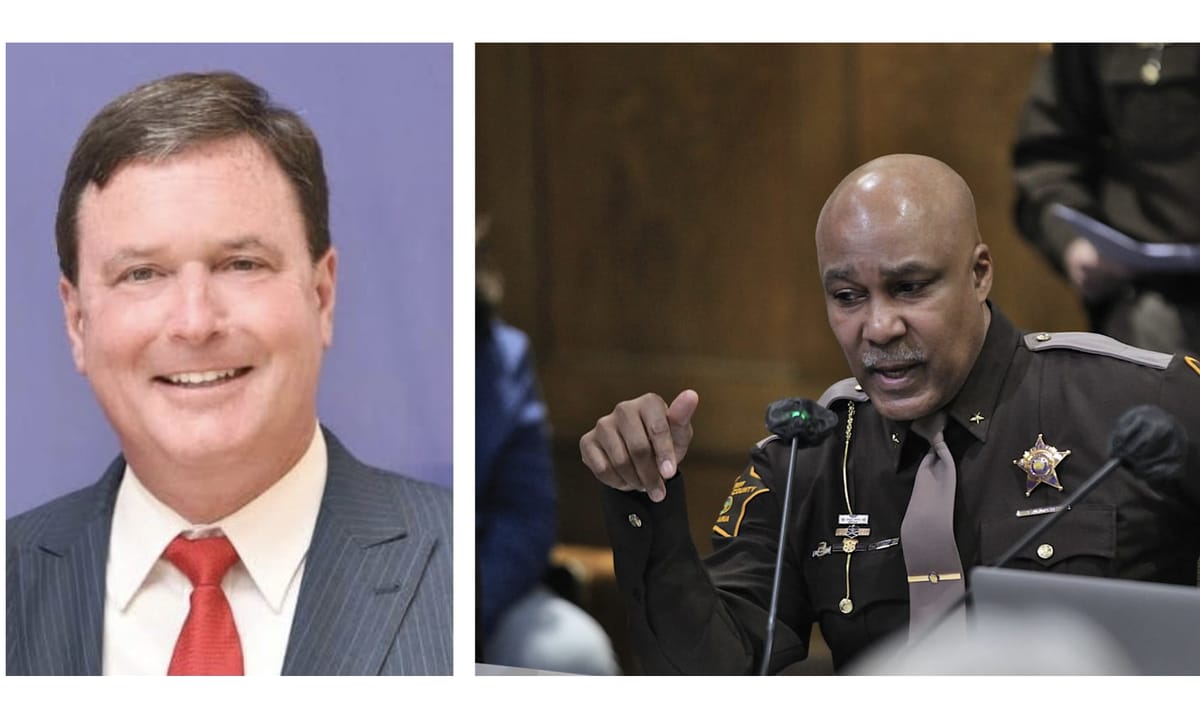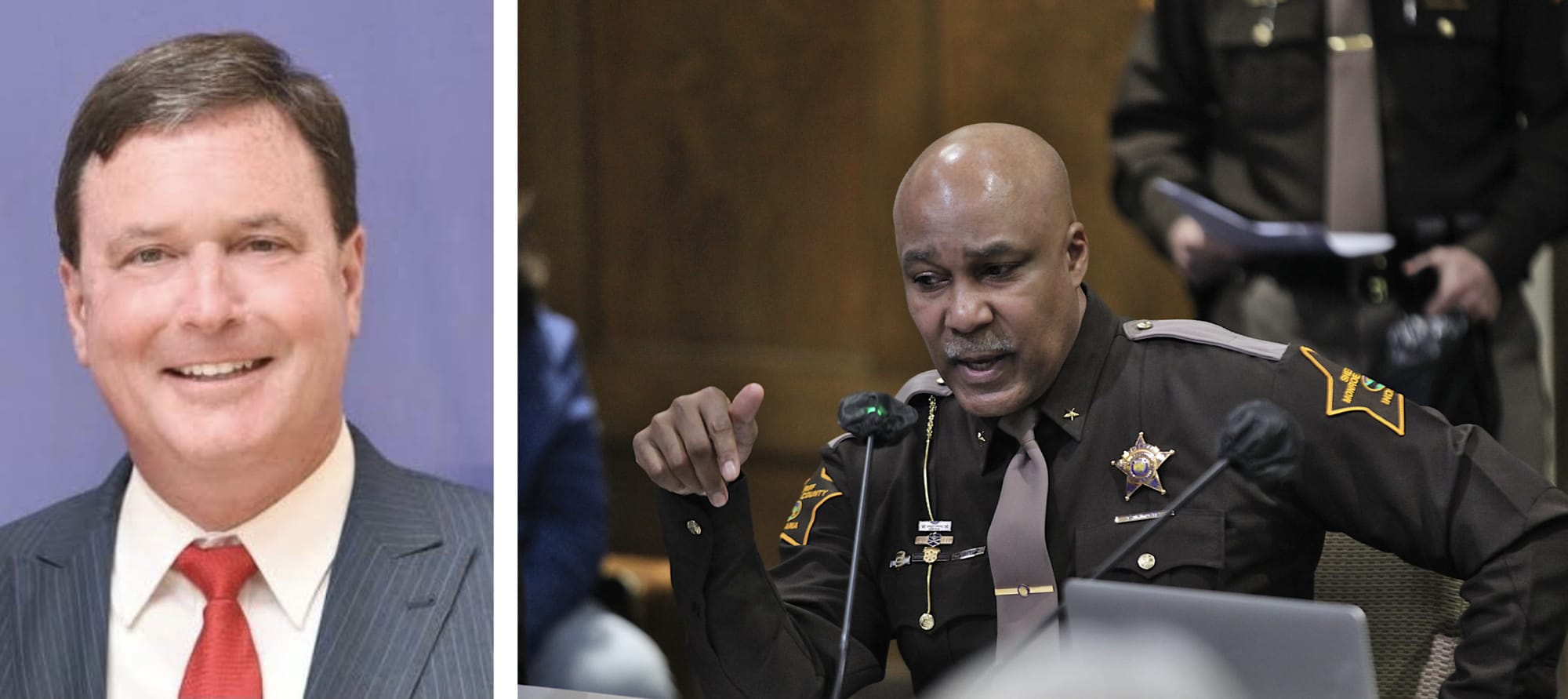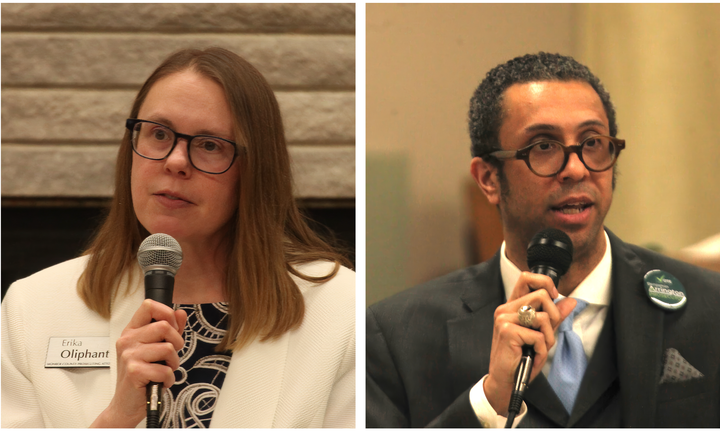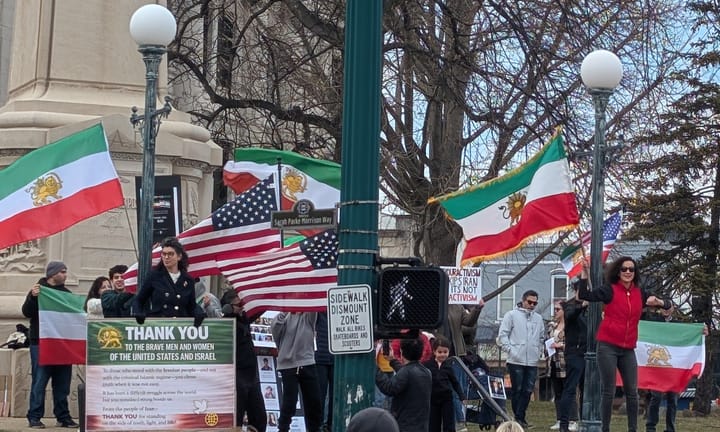Monroe County sheriff submits newly amended immigration enforcement policy in pending litigation with state AG
On Tuesday (June 24), Monroe County sheriff, Ruben Marté, submitted a new document, in connection with the lawsuit that Indiana’s attorney general has filed against him over the enforcement of immigration laws. This week’s filing included a copy of the sheriff’s newly revised policy.


On Tuesday (June 24), Monroe County's sheriff, Ruben Marté, submitted a new document to the circuit court, in connection with the lawsuit that Indiana’s attorney general, Todd Rokita, has filed against him over the local policy on enforcement of immigration laws.
This week’s document filing included a copy of the sheriff’s newly revised policy on immigration law enforcement. The policy was amended two weeks earlier, in order to reflect a new state law, which was enacted by the legislature earlier this year.
Under HB 1393, if a law enforcement officer arrests someone for a felony or misdemeanor and there is probable cause to believe that the person who has been arrested is not legally in the United States, the jail or detention facility has to notify the county sheriff of that probable cause.
The policy amendment made in early June appears intended to head off any potential complaint from Rokita about non-compliance with the new state law. It does not change the basic complaint that Rokita filed about a year ago about the Monroe County sheriff’s immigration law enforcement policy.
Here’s how the newly amended part of the sheriff’s policy reads:
D. In accordance with the requirements and provisions of Indiana Code 5-2-18.2-7:If a law enforcement officer arrests an individual for a felony or misdemeanor and there is probable cause to believe that the person is not lawfully present in the United States, the jail or detention facility shall, during the intake process at the jail or detention facility, notify the county sheriff of the probable cause to believe the person is not lawfully present in the United States.The county sheriff shall report information received under section D.1. to the proper authority.
Outside the circumstances identified in D. 1 and 2. above, it is generally not the responsibility of the MSCO or its employees to notify federal immigration officials when a non-citizen is taken into custody. If there is an active criminal arrest warrant for the individual, an employee shall notify the jurisdiction issuing the warrant of the detainment, regardless of immigration status.
Two sections of the pre-HB 1393 state law are part of the AG’s complaint. Section 3 is about impermissible restrictions on communicating or cooperating with federal officials. Section 4 is about impermissible limitations on the enforcement of federal immigration laws to less than the full extent permitted by federal law.
Part of Marté’s defense against the complaint is a part of his policy (MCSO-012), which in some respects repeats Section 3 of the state law.
From Section 3 of the state law:
IC 5-2-18.2-3 Prohibited from enacting or implementing restrictions on taking certain actions regarding information of citizenship or immigration status
Sec. 3. A governmental body or a postsecondary educational institution may not enact or implement an ordinance, a resolution, a rule, or a policy that prohibits or in any way restricts another governmental body or employee of a postsecondary educational institution, including a law enforcement officer, a state or local official, or a state or local government employee, from taking the following actions with regard to information of the citizenship or immigration status, lawful or unlawful, of an individual:
(1) Communicating or cooperating with federal officials.
(2) Sending to or receiving information from the United States Department of Homeland Security.
(3) Maintaining information.
(4) Exchanging information with another federal, state, or local government entity.
Here's how the state law compares to MCSO-012:
IV. Procedure …
C. In accordance with the requirements and provisions of Indiana Code 5-2-18.2-3, members of the MSCO will not prohibit, or in any way restrict, any other member from doing any of the following regarding the citizenship or immigration status, lawful or unlawful, of any individual:
1. Communicating or cooperating with federal officials.
2. Sending to or receiving information from the United States Department of Homeland Security.
3. Maintaining information.
4. Exchanging information with another federal, state, or local government entity.
Activity in the case for the second half of 2024 resulted in a ruling from special judge Lucas Rudisill that allowed Rokita to amend his original complaint.
The attorney general (AG) contends that the sheriff’s policy cannot be made to conform with the state law just by reciting much of the wording of the law as a part of the policy—if other parts of the policy contradict it.
Many of the arguments back and forth in the filings boil down to what previous precedents have to say about what it means to cooperate with federal officials. The sheriff’s position on the other parts of the policy includes the idea that the AG is misinterpreting Section 3, because it applies only to information about a suspect’s immigration status already in the possession of the sheriff’s office, not to assistance in collection of additional information.
After oral arguments were heard on May 2, Rudisill indicated he would rule on the sheriff’s motion to dismiss the complaint sometime after proposed orders from each side were due, on May 7.




Comments ()